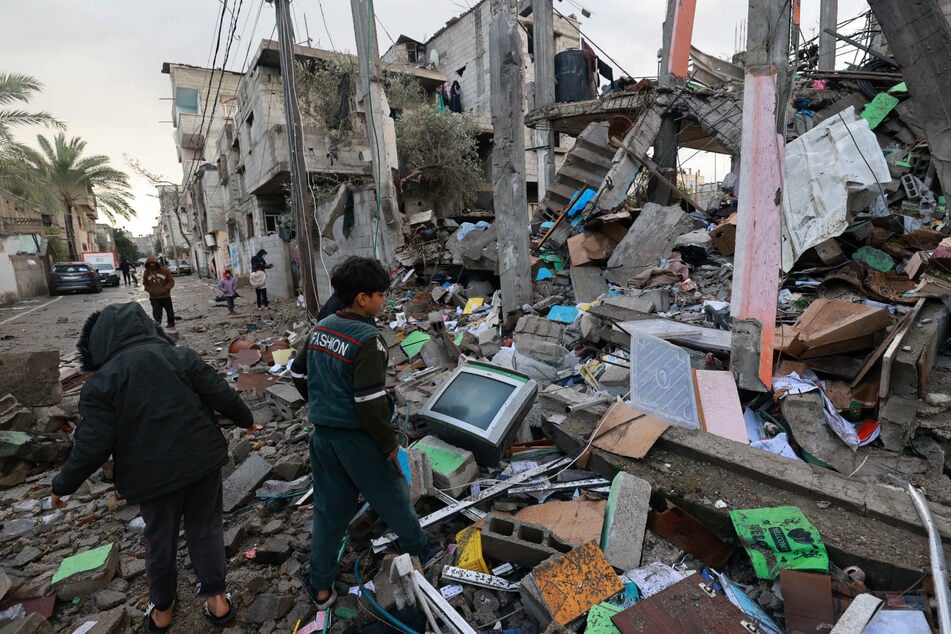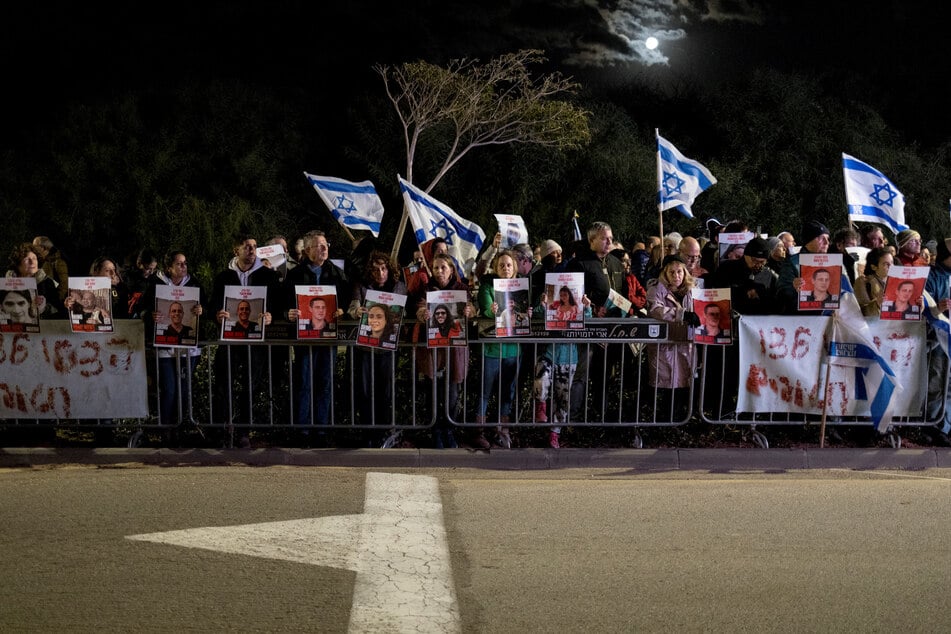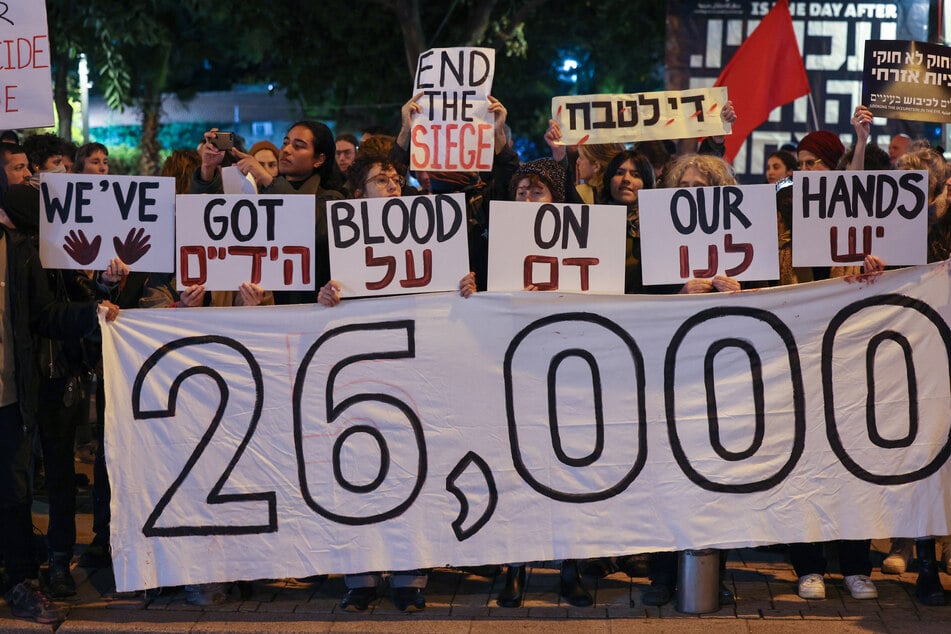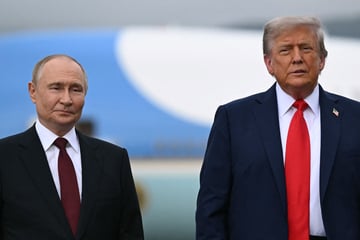Intense fighting in south Gaza as Israel vows to shut out vital UN agency
Gaza - Intense fighting raged Saturday in the Gaza city of Khan Younis, sending Palestinians fleeing further south as Israel's Prime Minister Benjamin Netanyahu doubled down on his vow to "eliminate Hamas."

The unabated Israeli attacks came as Israel targets the United Nations agency for Palestinian refugees, UNRWA, which has been at the heart of humanitarian efforts in the war-battered Gaza Strip.
On Friday, the agency said it had sacked several staff whom Israel accused of involvement in Hamas' October 7 attack, leading some key donor countries to suspend funding.
Foreign Minister Israel Katz said on Saturday that Israel wanted to ensure the UN agency, which provides education, health, and other vital services to Palestinians, "will not be part of the day after" the bloodiest-ever assault on Gaza.
Israel's military campaign began soon after Hamas' October 7 attack that resulted in about 1,140 deaths in Israel, mostly civilians, according to Israeli official figures. Militants also seized about 250 hostages, and Israel says around 132 of them remain in Gaza, including the bodies of at least 28 dead captives.
The Israeli bombardment and ground invasion of Gaza have killed at least 26,257 people, most of them women and children, according to the latest figures. The relentless attacks come after decades of occupation and oppression of the Palestinian people.
Netanyahu, who has faced increasing domestic pressure over his handling of the conflict, said in a televised statement: "If we don't eliminate Hamas terrorists... the next massacre is only a matter of time."
The army says at least 220 soldiers have been killed since Israel began its Gaza ground operations, which are now focused around Khan Younis.
Palestinians forced to flee further south as Israeli assault continues

Israel's military on Saturday reported numerous militants killed in Khan Younis and said troops raided the house of an associate of Hamas leader Yahya Sinwar and "a weapons warehouse."
Palestinians are fleeing the fighting, adding to the number already crowded into Rafah, near the Egyptian border, where the United Nations says most of Gaza's estimated 1.7 million displaced have converged.
They live in the street, where sewage flows, amid "conditions of desperation conducive to a complete breakdown in order," said Ajith Sunghay of the UN Human Rights Office.
AFPTV images showed people wading through ankle-deep water around tent-like plastic shelters in Rafah, where bombardment still threatens.
"I didn't find shelter, I didn't find a tent, I didn't find anything," said 70-year-old Umm Imad, displaced from a town east of Khan Younis. "I've seen all the wars," she said, but none were "more difficult than this war... look around us."
Experts have told AFP that Netanyahu's steadfast promise to eliminate Hamas is increasingly seen within his war cabinet as incompatible with returning the hostages held in Gaza. His failure to bring home the captives has led to mounting protests and calls for early elections in Israel, more of which took place on Saturday night.
The experts have said they expected Netanyahu to continue the assault as a tactic to remain in power, even as pressure to change course mounts.
In Israel's commercial hub, Tel Aviv, and near Netanyahu's private residence in the upscale coastal town of Caesarea, demonstrators carried posters of the hostages and banners calling to "bring them home."
"There needs to be a change... in order to get a deal done that brings the hostages out," said Ruby Chen, whose son Itay is held in Gaza.
A separate, smaller rally in Tel Aviv called to "end the war," with protesters carrying signs that read: "We've got blood on our hands."
UN rules Israel must prevent genocide in Gaza assault

On Friday, the UN's International Court of Justice ruled Israel must prevent possible acts of genocide in the conflict – and allow in more aid – but stopped short of calling for a ceasefire.
The UN Security Council will meet on Wednesday to give "binding effect" to the decision, said Algeria, which called the meeting.
Israel has repeatedly criticized the UN during the war, and its relations with UNRWA have been strained for years. After the UN agency announced the sacking of several employees on Friday, its top donor, the United States, said it was suspending funding, with several others following suit.
Late Saturday, UNRWA Commissioner-General Philippe Lazzarini said the "shocking" funding suspensions "threaten our ongoing humanitarian work," especially in Gaza, where famine looms.
The Hamas government said "massive tank bombardment" targeted a refugee camp in Khan Younis and Nasser Hospital, the city's largest.
Many medical supplies have run out at the facility, and the fighting has damaged its water tanks, said Gaza health ministry spokesperson Ashraf al-Qudra.
The Doctors Without Borders (MSF) aid group said surgical capacity was "virtually non-existent" at the hospital.
Another Khan Younis hospital, Al-Amal, was "under siege with heavy gunfire," the Palestinian Red Crescent Society said.
On Friday, Dr. Omar Al-Najjar, a 24-year-old intern physician, called in from an overrun hospital in Rafah to testify in a groundbreaking US federal court hearing accusing President Joe Biden and other top US officials of complicity in Israel's genocide.
Cover photo: AFP

